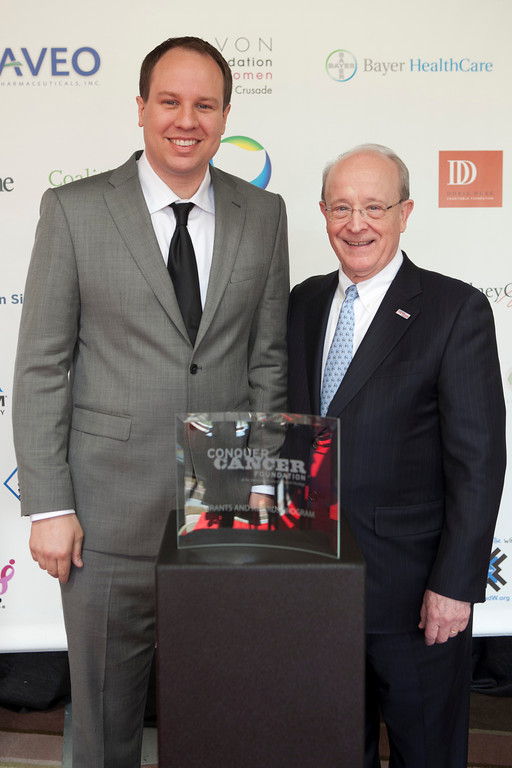Sep 18, 2012
 ASCO Connection recently touched base with Conquer Cancer Foundation of ASCO grant recipient Philippe Bedard, MD, FRCPC, of Princess Margaret Hospital, University Health Network. Dr. Bedard received a 2012 Career Development Award (CDA), which provides funding to clinical investigators who have received their initial faculty appointment to establish an independent clinical cancer research program with a patient-oriented focus. In the following interview, Dr. Bedard discusses his hopes for his research and what the CDA has meant for his career so far.
ASCO Connection recently touched base with Conquer Cancer Foundation of ASCO grant recipient Philippe Bedard, MD, FRCPC, of Princess Margaret Hospital, University Health Network. Dr. Bedard received a 2012 Career Development Award (CDA), which provides funding to clinical investigators who have received their initial faculty appointment to establish an independent clinical cancer research program with a patient-oriented focus. In the following interview, Dr. Bedard discusses his hopes for his research and what the CDA has meant for his career so far.
AC: Why did you decide to become a clinical oncologist?
Dr. Bedard: As an oncologist, every patient encounter makes a difference. The opportunity to improve care for [patients with cancer] and their families is a powerful motivator. Participating in early-phase clinical trials research allows me to make an impact in the development of new cancer drugs that extends beyond my clinical practice.
AC: What is the current status of your trial, “A randomized, open-label phase II trial of combined pathway blockade for PI3K and MAPK pathway mutated breast, colorectal, non-small cell lung, and ovarian cancer”?
Dr. Bedard: Our molecular screening program at Princess Margaret Hospital to identify patients with PI3K and MAPK pathway mutations was launched in March 2012. Accrual has exceeded our initial projections. There is tremendous demand amongst patients and oncologists for molecular profiling information. We are expanding accrual that will identify patients who are eligible to participate in our phase II trial of combined pathway blockade. The clinical study protocol is being finalized and we hope to initiate accrual early in 2013.
AC: What are the hypothesized outcomes of the trial?
Dr. Bedard: We hypothesize that combined pathway inhibition will be an active anticancer treatment approach for patients with somatic activating mutations in regulators of the PI3K and MAPK pathways. We also hope to identify emergent genomic alterations in patients who develop to combined pathway inhibition.
AC: How will this research affect patient care?
Dr. Bedard: This project will make selective MAPK and PI3K pathway inhibitors available to patients with few therapeutic options who may benefit these anticancer agents. In the long term, patient care may be enhanced by more effective treatment that matches the molecular profile of a patient’s tumor to specific targeted therapies and by a better understanding of therapeutic resistance that can be further studied to improve outcomes.
AC: What has receiving a CDA meant to you?
Dr. Bedard: I’m honored to have been granted a CDA. Meeting with the other recipients at the awards reception and learning about the quality of their research was an eye-opening experience. Being recognized by leaders in clinical cancer research as a promising early-career investigator is inspirational. There are few grants available for early-career clinical investigators in oncology. The CDA provides key support that can be leveraged to obtain additional peer-reviewed funding to support the growth of my own independent research program.
AC: Do you have any advice for early-career oncologists on choosing a track and a specialty?
Dr. Bedard: Think about what you enjoy doing most on a day-to-day basis. It’s easy to get blinded by the light at the end of the tunnel after a long residency and fellowship, but don’t be afraid to pursue opportunities for training if it will assist your career development. Don’t underestimate the importance of maintaining good relationships with colleagues and being collaborative.
AC: What are some of your interests outside of oncology?
Dr. Bedard: My son is 20 months old. My wife and I are expecting our second child in September. I look forward most to the time that I spend with my family outside of work. I also enjoy traveling, watching movies, and following my favorite sports teams.
